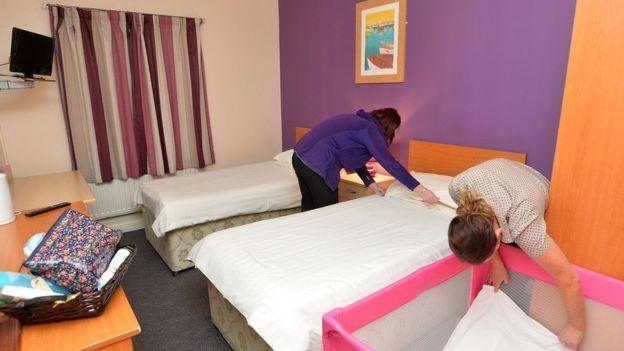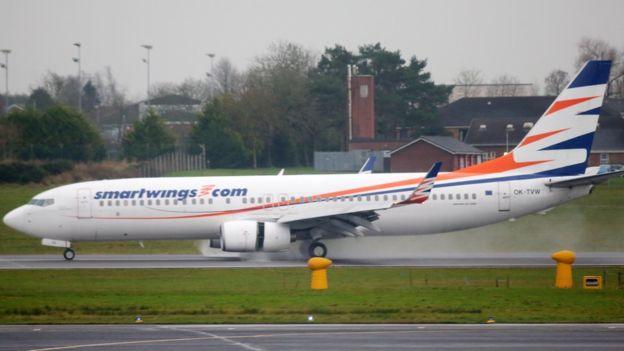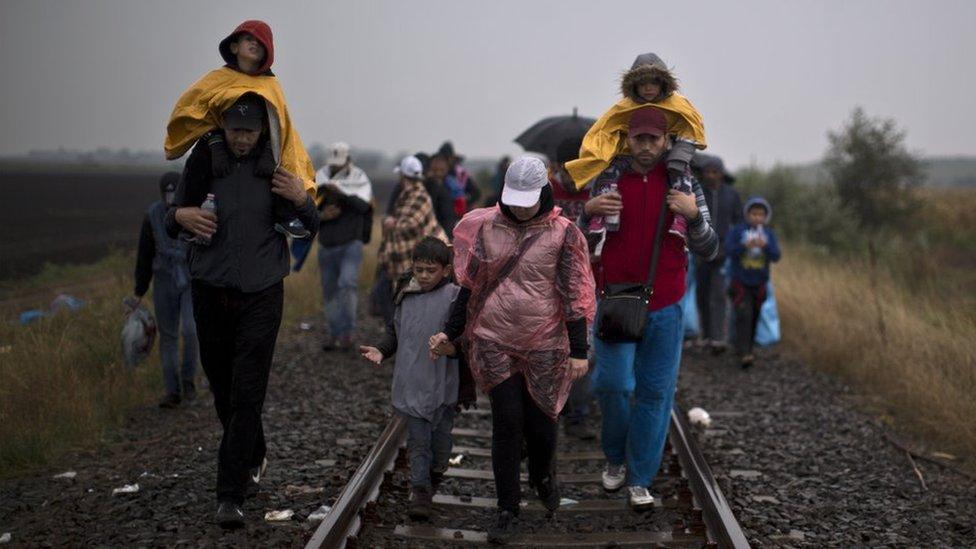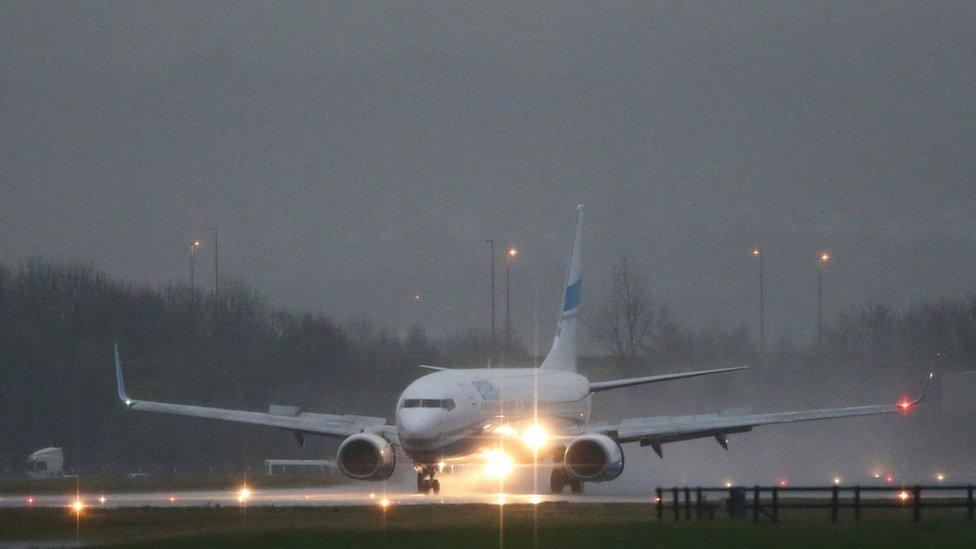Syrian refugees: 14 families and 20 children to arrive in NI
- Published

The families are due to spend their first few days in Belfast at a special welcome centre
Fifty-seven Syrian refugees, including 14 families and 20 children, are due to arrive in Northern Ireland on Thursday.
One family will be housed in Belfast, while the remaining families will be housed in Londonderry.
When they arrive, the families will spend their first few days in a special welcome centre in Belfast to help them adapt to their new surroundings.
This is the second group of Syrian refugees to be given shelter in Northern Ireland.
'Positive reaction'
Those arriving on Thursday range in age from two years old to late 50s, and several of the adults are believed to have university-level education.
The UK is due to accept 20,000 refugees from Syria over the next five years as part of the Vulnerable Persons Relocation Scheme. , external
Stormont's Department of Social Development (DSD) and the Red Cross have said that the reaction to the arrival of refugees in Derry has been wholly positive and that many people have volunteered to help.

Vulnerable Persons Relocation Scheme
All of the "paperwork" is completed before the refugees arrive.
It prioritises women and children at risk, people in need of medical attention and survivors of torture and violence.
All refugees settled under the scheme have undergone a two-step security screening process.
People under the scheme will have access to housing, medical care and education, and they can work.
The Home Office will provide funding of at least £10,000 per refugee for the first year.
Refugees taken into the UK under the scheme will be granted five years' humanitarian protection, external which includes access to public funds, the labour market and the possibility of family reunion, external, if a person was separated from their partner or child when leaving their country.
After those five years they can apply to settle in the UK, external.
The DSD has direct responsibility for overseeing the operation of bringing the refugees into Northern Ireland.

The refugees are due to arrive in Belfast on Thursday
The refugees are expected to live in Northern Ireland for five years, after which time they can choose whether to go back to Syria or apply for UK citizenship as long as they do not have a criminal record.
The families will be able to move freely across the UK, but will not be able to travel to the Republic of Ireland as laws regarding refugees in both jurisdictions are different.
Failure to adhere to this regulation could result in a criminal record.
- Published15 December 2015

- Published27 November 2015

- Published17 November 2015
